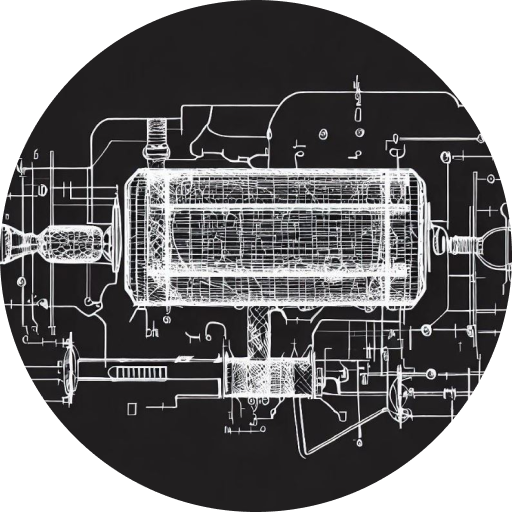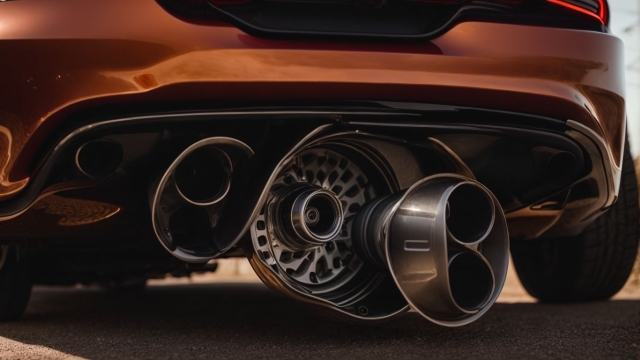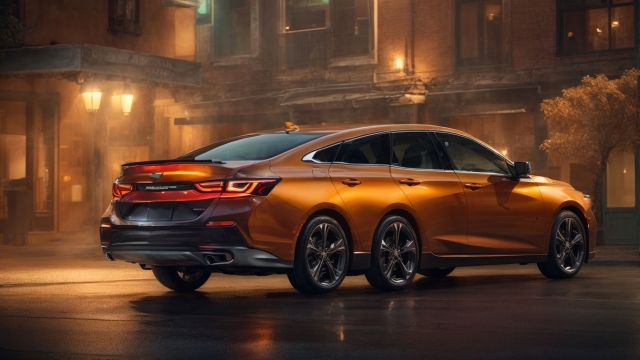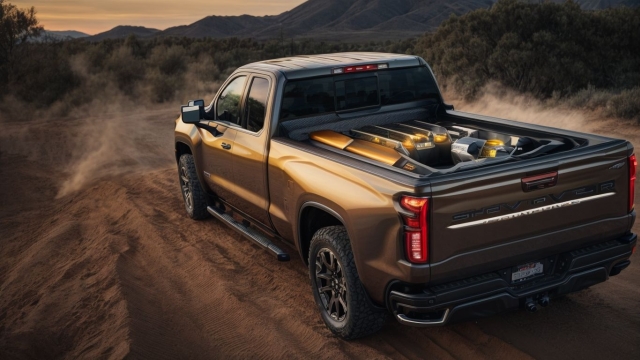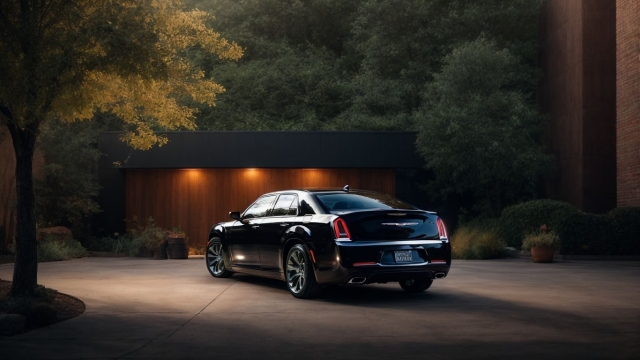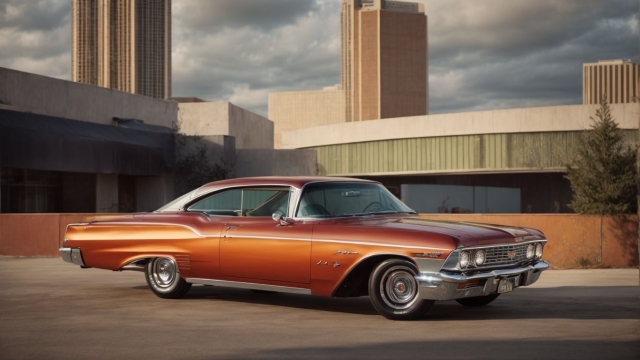Upgrade Your Dodge Charger with a High-Quality Catalytic Converter
.jpg)
The catalytic converter for Dodge Charger is vital in reducing bad emissions. It helps the environment and keeps your vehicle running well. It’s part of the car’s exhaust system and contains catalysts that promote chemical reactions. Precious metals like platinum, palladium and rhodium are used in the process. This changes nitrogen oxides to harmless nitrogen gas and water vapor, and also changes carbon monoxide into carbon dioxide.
It not only helps the environment, but also improves fuel efficiency and power. This is due to better exhaust flow. Your Dodge Charger will benefit from optimal fuel combustion and reduced backpressure.
For the catalytic converter to last long, regular maintenance is a must. A professional technician should inspect it regularly to detect any problems. To ensure proper fitment and performance, you should invest in high-quality converters designed for Dodge Charger models. Maintaining it will keep your vehicle and the environment in great condition.
What is a Catalytic Converter
A Catalytic Converter is a device installed in vehicles, like the Dodge Charger, to reduce harmful emissions. It converts toxic gases produced during fuel combustion into less harmful substances, such as water vapor and carbon dioxide. This eco-friendly part is vital for decreasing air pollution and protecting the environment.
Catalytic Converters make it possible to convert noxious pollutants, like nitrogen oxide and carbon monoxide, into less damaging compounds. This is done with catalysts, often made from platinum, palladium, and rhodium. These catalysts promote chemical reactions that break down the noxious gases into less harmful substances. As a result, the emission levels from vehicles are reduced significantly.
Besides cutting down pollution, another aspect of catalytic converters is their effect on engine performance. Even though they are effective at lowering emissions, they can generate back pressure in the exhaust system. This back pressure may slightly decrease engine power and fuel efficiency. However, recent improvements in catalytic converter technology have minimized this effect, allowing a better balance between environmental concerns and vehicle performance.
Fascinatingly, Pierre DuPont developed the first practical catalytic converter used in automobiles. His company – DuPont Corporation – patented the technology in 1950. Since then, catalytic converters have become an indispensable component of automotive exhaust systems around the world.
Importance of a Catalytic Converter for Dodge Charger
The catalytic converter of a Dodge Charger is critical to its performance and efficiency. It cuts down on hazardous emissions from the engine, to meet environmental standards. Without it, the Charger would be polluting the air and harming the environment.
It also boosts fuel economy by optimizing combustion. Through a chemical reaction, it changes dangerous gases like carbon monoxide, nitrogen oxide, and hydrocarbons into less toxic substances like carbon dioxide and water vapor. This helps keep the environment safe and reduces fuel costs for the car owner.
Besides its ecological advantages, it also plays a major role in maintaining engine performance. By eliminating pollutants from exhaust gases, it prevents blockages in engine parts and ensures smoother operation. This brings about better performance and longevity of the Dodge Charger.
An example of its importance is a Dodge Charger owner who had decreased acceleration and engine misfires. A clogged catalytic converter, caused by too much carbon buildup, was the cause. After replacing it, not only did acceleration boost up but the engine was also running well again.
Common Catalytic Converter Issues for Dodge Charger
The Dodge Charger is well-known for its power and fantastic design. Sadly, like any car, it can have catalytic converter issues. This can be frustrating for the Charger’s owners. To understand these problems, let’s look at the most common ones in a clear table:
| Common Catalytic Converter Issues for Dodge Charger | ||||||||||
|---|---|---|---|---|---|---|---|---|---|---|
|
It’s important to know these issues, so you can take quick action. You must also think of how these issues can hurt the Charger’s engine. If you don’t address them, you might have bad fuel efficiency or severe engine damage.
Don’t wait until it’s too late! Take care of your catalytic converter issues now to avoid costly repairs. Doing this can keep your vehicle in great shape and preserve its value. Don’t miss out on the smooth ride with your Dodge Charger – act now!
Choosing the Right Catalytic Converter for Dodge Charger
Choosing the right catalytic converter for your Dodge Charger is very important. Here’s a guide to help you out.
We’ve put together a table to show the specs of various options that are suitable for the Dodge Charger:
| Converter Brand | Material | Emissions Standard | Engine Compatibility | Price |
|---|---|---|---|---|
| Brand A | Ceramic | EPA | 3.6L V6 | $XXX |
| Brand B | Stainless Steel | CARB | 5.7L V8 | $XXX |
| Brand C | Titanium | Euro 6 | 6.4L V8 | $XXX |
This information will help determine which catalytic converter is best for you and your vehicle. Each brand offers different benefits like material, emissions standard, engine compatibility, and price.
Installing a high-quality catalytic converter can improve your vehicle’s exhaust system and reduce emissions. Tom upgraded to a ceramic catalytic converter from Brand A and saw an increase in horsepower and fuel efficiency. He passed emissions tests easily and had smoother acceleration.
It’s important to choose the right catalytic converter for environmental compliance and better performance for your Dodge Charger. Take time to research the market and make a wise choice!
Top 5 Catalytic Converters for Dodge Charger
Searching for a replacement or upgrade for your Dodge Charger? Here are the top 5 catalytic converters to consider. Let’s go through the details!
- MagnaFlow 99206HM Catalytic Converter: crafted for the Dodge Charger, it offers durability and precision.
- Eastern Catalytic 30408 Catalytic Converter: stainless steel construction, great for reducing emissions.
- Walker 16448 Ultra Direct-Fit Catalytic Converter: advanced tech, OEM-style design – optimal performance!
- Evan Fischer REPF961109 Catalytic Converter: robust design and direct-fit functionality, making installation easy.
- Bosal VFM-1732 Catalytic Converter: stainless steel body, superior emission control.
When choosing a converter, think about your needs. Do you prioritize performance or environment-friendliness? Also, make sure it fits your Dodge Charger model. To get an idea of user experience, read reviews.
Finding the right converter will ensure you meet emission standards and boost your driving experience!
Installation Process of a Catalytic Converter in Dodge Charger
- Prepare the car. Park it on a flat, stable surface. Put on safety gear like gloves and glasses.
- Locate the old catalytic converter. It’s usually between the exhaust manifold and muffler. You may need to raise the rear of the vehicle for better access.
- Remove the old catalytic converter. Use a wrench or socket set to remove the bolts and clamps. Disconnect any sensors or pipes connected to it. Set aside the components for disposal.
- Install the new one. Place it in position, making sure it properly aligns. Secure it with bolts or clamps, tightening firmly.
- Reconnect sensors and pipes. Attach and tighten them properly.
- Test and adjust. Start the Charger and let it idle for a few minutes. Check for leaks or odd noises. Take it for a short drive and observe the performance.
Remember that proper installation is key for optimized vehicle performance and reduced emissions. Tampering or removing a catalytic converter violates environmental regulations and has legal consequences. Installing a new one can improve fuel efficiency by reducing exhaust emissions.
Maintenance Tips for a Catalytic Converter in Dodge Charger
The catalytic converter in your Dodge Charger is vital to reduce harmful emissions. To maintain it properly and increase its life, follow these tips:
- Inspect the converter for any cracks, dents or rust. If you see any, replace it.
- Don’t use low-quality or contaminated fuel. Stick to good gas stations and use additives for cleaner combustion.
- Keep your engine tuned and maintain the correct air-fuel ratio. A misfiring engine or running rich can cause heat buildup in the converter and lead to its failure.
- Check the oxygen sensors. They monitor the efficiency of the catalytic converter. Replace them if they’re faulty to avoid damage.
- If you drive short distances, take your Dodge Charger on the highway occasionally. This helps the converter reach its optimal temperature and clean itself.
Also, park away from grass or debris that could cause fires and damage the underbody of your car.
It’s essential to remember that regular maintenance lengthens the life of your catalytic converter and keeps our environment clean.
My friend neglected his Dodge Charger’s catalyst converter maintenance for too long. It got clogged with carbon deposits since he drove only short trips. He faced costly repairs and poor performance because he didn’t inspect regularly. Avoid making this mistake – keep up with your catalytic converter’s maintenance!
Conclusion
Catalytic converters are essential for Dodge Chargers. They reduce toxic emissions. The design and construction of the converter helps with optimal performance and environmental regulations.
The converter turns bad exhaust gases into less toxic substances, which leads to cleaner air. It’s also made to be robust and durable. Plus, it boosts engine performance and fuel efficiency.
Maintenance is needed to keep the catalytic converter working. Regular checks will spot any issues or damage quickly. Then, repairs or replacement can be done.
Pro Tip: Talk to an experienced mechanic or car specialist to find the best catalytic converter for your Dodge Charger. Think about compatibility, performance and environmental regulations.
- Upgrade Your Honda Accord with the Best Catalytic Converter for Enhanced Performance - October 30, 2023
- Boost Your Chrysler 300’s Performance with a High-Quality Catalytic Converter - October 30, 2023
- Enhance Your Jeep Liberty Performance with a Catalytic Converter - October 30, 2023
